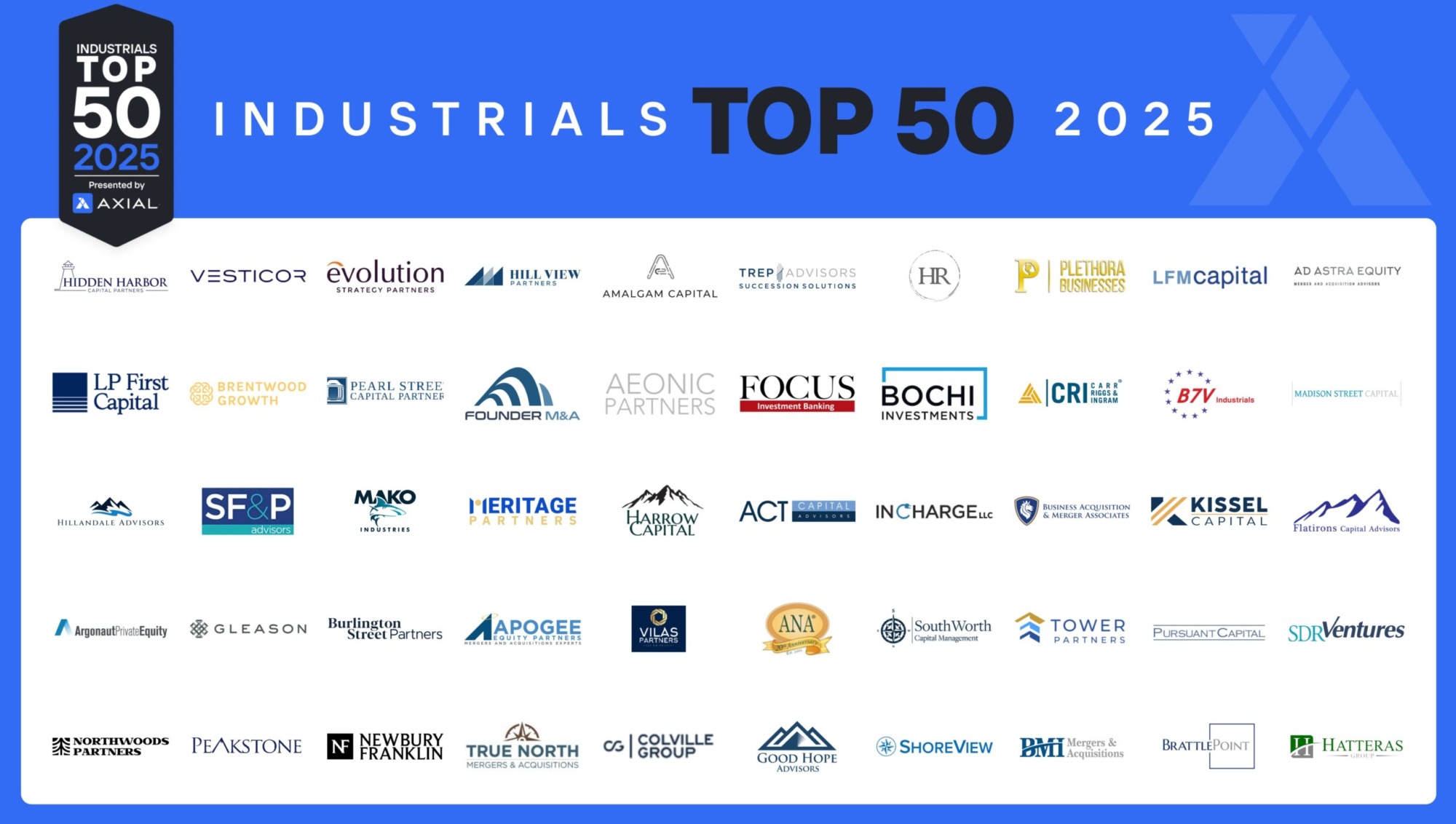
The Top 50 Lower Middle Market Industrials Investors & M&A Advisors [2025]
Industrials remains the most dominant sector in Axial deal flow, representing more than 25% of all deals brought to market…
Cross-border M&A made up 45% of global deal volume during the first five months of 2016, easily surpassing the historical average of 30%. It is a welcome boon for an otherwise uncertain and disappointing M&A field, and there’s reason to expect the cross-border trend may continue.
Credit Suisse recently reported on an Ernst & Young survey of executives that found nearly three-quarters considered cross-border investments a better destination for their capital than domestic investments. “Our survey finds companies eager to look abroad to find pockets of growth,” explained E&Y. Later, the survey asked about the top investment destinations of choice. The number one destination, according to executive respondents? The United States.
Therein lies the rub for American investors and PE firms. Even though U.S. markets are not fountains of opportunity — à la 2013 — and may be overpriced, the world lacks a go-to global stud. Europe is embroiled in the “Brexit” debate and subsequent fallout. India suffers from regime uncertainty and the RBI jealously hovers over cross-border activity (though Prime Minister Narendra Modi often appears sympathetic to promoting international investments). Now Chinese expectations have fallen back to Earth and the dollar remains strong; the American economy might again be the cleanest shirt in a dirty hamper.
Headwaters MB Managing Director Stephen Lewis identifies three major sources of cross-border volatility: Brexit, China’s weakening, and the fallout from the litany of scandals in Brazil.
Many actors are leaving Brazil alone, says Lewis, “until there is a bit more clarity on the country’s direction politically and economically.” Europe and China are more interesting destinations from a U.S. M&A perspective.
The United Kingdom is set to vote in late June on whether or not to remain a partial member of the European Union. Anti-EU enthusiasts will surely be disappointed with a “stay” vote, but investors and funds may breathe a sigh of relief. An EU-compliant UK plays under known rules and remains an attractive destination.
A “leave” vote introduced a lot of uncertainty. Lewis says the consequences may not be immediate, but “will have a profound effect for years to come.” The current European regulatory structure limits red tape and tariffs, and many American investors take advantage of the UK’s relationship with Europe to access continental markets.
“Let me put this in perspective,” Lewis explains. “Goldman Sachs recently said in an article appearing in the Wall Street Journal that it has approximately $6.9 billion of assets on their books as a direct result of being able to avail themselves of the passport to Europe by being established in Britain.” If the UK votes to leave the EU, businesses may scramble to relocate to other member nations to stay within the same regulatory framework, but nothing is certain.
How are M&A actors to respond? Lewis highlights two alternatives. One is to put deals on hold and ride the storm out. The other is to “build provisions into purchase agreements and financing documents that will be triggered if Britain exits.” Such provisions would ostensibly compensate for the added risk, leading to lower prices or higher financing rates.
Financial capital is fleeing China, and new financing rules from Beijing only increase uncertainty for the remainder of the year.
“The Chinese government has recently attempted to impose restrictions on the ability to expatriate cash in an effort to prop up the economy,” says Lewis. “It has become even more difficult than before to construct deals on the Chinese mainland through a combination of bureaucratic red tape, lack of consistent transparency in the legal system, and the difficulty of getting debt financing.”
In late April and early May, authorities implemented several so-called “circulars” to limit or regulate cross-border financing to improve “macro-prudential management” of Chinese assets. This is consistent with the People’s Bank of China’s (PBC) previous activity in 2015 and 2016, and it only adds to the regime uncertainty investors must deal with.
A surprisingly strong dollar and artificially suppressed RMB should induce a lot of in-bound M&A activity from wealthy Chinese trying to preserve their assets. Yet the Chinese government is squeezing out-bound investments and western governments fear security breaches with information and technology. Dealmakers will sit on the sidelines if they want to avoid hazardous waters.
Overall, China is an economy in search of an identity. Information can be difficult to get and often more difficult to trust, even for firms with established public and private relationships. Western private equity actors — generally used to capitalist attitudes and practices — risk flying blind inside a country still wrenching through the principles of its communist foundation.
International opportunities require more than financial investments, says Lewis. He stresses the practical when speaking about Headwater’s approach. “We spend a great deal of time with the client helping them become familiar with the business customs and practices of the country.” Without such deliberate diligence efforts, investors risk underestimating “the degree of difficulty of execution of their business plan.”
We’ve highlighted the importance of due diligence recently (here, here, and here). There are always going to be pockets of growth in a low-return environment, and the diligence process is one of your best weapons against error.
